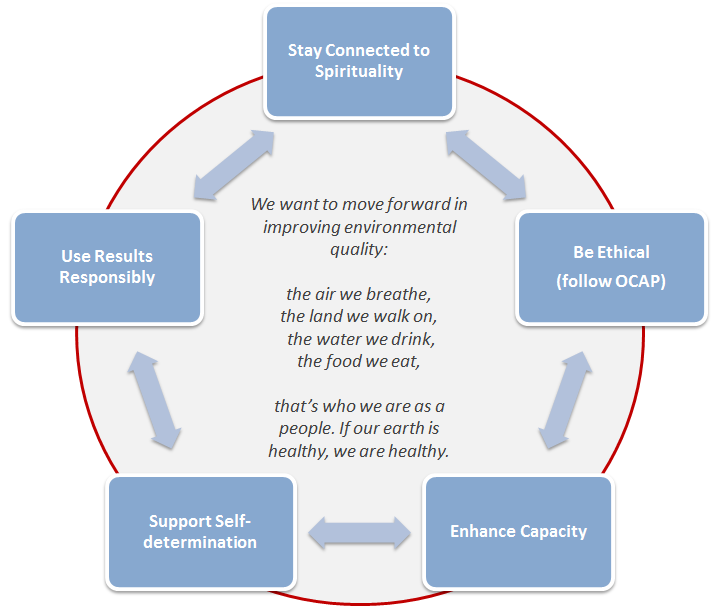Community-led projects with First Nations and health system partners
In collaboration with various partners, CAREX Canada has been working since 2009 to mobilize information about environmental quality in First Nations communities. Through these efforts, we’ve offered training workshops on CAREX tools for assessing environmental quality, and supported communities to interpret the results of major studies and local measurement data. More recently, we convened a group of advisors and developed a strategic framework (illustrated below) to inform how the CAREX project could most effectively help to address concerns about environmental health in First Nations communities. The strategic plan (available here) centers around the principles outlined below.
This special topics page illustrates how we’ve put this strategic plan into action. It includes the repository of resources we’ve co-developed with First Nations and health system partners through a series of knowledge translation and exchange projects.
Cancer and the Environment Projects
With the support of a Knowledge to Action grant from the Canadian Institutes of Health Research, and in partnership with the Propel Centre for Population Impact and First Nations Environmental Health Innovation Network (FNEHIN) at the Assembly of First Nations, we put out a call for pilot projects to over 650 First Nations organizations and communities across Canada. Out of 16 proposals, four projects from around the country were chosen. Through these four community-led pilot projects executed over a two-year timeframe (2014-16), we collaborated with 15 participants from four First Nations organizations across four provinces to identify concerns related to environmental carcinogen exposures and to address those concerns through knowledge translation (KT) activities. Planned activities varied depending on organization scope and identified concerns; they included: co-developing briefing notes, reports, and fact sheets; implementing measurement programs; and creating interactive maps. Evaluation surveys and semi-structured phone interviews were conducted with project participants at multiple time points to assess process, progress, barriers and facilitators, and impact, and qualitatively analyzed.
A total of 18 different concerns were identified by participants; the most common were exposures associated with existing and proposed industrial emitters, contaminants in traditional foods, and radon gas exposure in homes. A total of 24 knowledge products were co-developed; 91% were ranked as “very useful” or “useful” by participants. Tailored fact sheets for communities and briefing notes for leadership were deemed most useful; interactive maps were deemed less useful. Evaluation indicated that the collaborative projects were effective in addressing the variety of concerns raised regarding exposures to carcinogens. Facilitators identified for projects include the participant-led approach and multi-year funding to support both capacity enhancement and face-to-face engagement. Barriers included lack of resources (people and time) among participants to collaborate, given competing priorities.
It is the collaborative work of these projects that is presented in the pods below. Please note that these resources were designed to address the unique needs of individual communities and may not be applicable to all situations. If you’re interested in having some of these resources tailored to your group or community, please get in touch with us at info@carexcanada.ca.
Assembly of Manitoba Chiefs
The Assembly of Manitoba Chiefs (AMC) is an advocate organization for issues that commonly affect all First Nations of Manitoba (64 total). The focus of our work with the Assembly was synthesizing knowledge to help lands and resource staff better understand environmental health issues in the regions. The resources we developed with the Assembly include:
- Interactive Map (Data browser) An online map showing the major emitters, active and inactive mine sites, federal contaminated sites, major rivers, and watersheds in Manitoba. A manual for using this map is available here.
- An overview of contaminant sources and measurements, stakeholders, and potential future emissions in Manitoba (Report) Summarizes data from publically available sources on the number of large emitters and contaminated sites within 50 km of each First Nations community
- Environmental pollutants – Sources (Report) Shows how close emitters and contaminated sites are to First Nations communities
- Environmental pollutants – Monitoring (Report) Investigates whether measured levels are of concern with respect to increased cancer risk
- Regional stakeholders in resource development or protection of human health (Report) Lists contact information for a wide range of relevant organizations in Manitoba
- Future regional resource development (Report) Conveys which known and suspected carcinogens are emitted by different sectors, and information about pending and recently permitted projects with potential to increase emissions
Mississauga First Nation
The Mississauga First Nation is a traditional territory located directly west of Blind River in Ontario. The focus of our work with Mississauga was developing community outreach materials and enhancing capacity to look at specific concerns such as drinking water quality and radiation exposure. The resources we developed with Mississauga include:
- Interactive Map (Data browser) An online map showing the major emitters, active and inactive mine sites, federal contaminated sites, major rivers, and watersheds in and around the Mississauga First Nation territory. A manual for using this map is available here.
- Cancer Education Activity (Toolkit) An education kit aimed at children ages 8-14 to increase awareness of risk factors for cancer, including a series of cards covering five different cancer risk factors: smoking, activity level, diet, pollution, and screening
- Drinking water chlorination – What are the risks? (Briefing note) Discusses the balance between the use of chlorine-based additives to kill harmful organisms in drinking water and the levels of harmful chemicals created as byproducts in the disinfection process
- Polycyclic aromatic hydrocarbons in traditional foods (Briefing note) Looks at the cancer risk associated with PAHs in the most commonly consumed traditional foods
- Radon – Second leading cause of lung cancer comes from rocks and soil (Briefing note) Reviews why radon levels are naturally higher in some areas of Canada, how exposure occurs, and what can be done about it
Timiskaming First Nation
The Timiskaming First Nation is a traditional territory located 50% in Ontario and 50% in Quebec. The focus of our work with Timiskaming was increasing community awareness and enhancing capacity to look at specific concerns, such as radon exposure in homes and contaminants in traditional foods. The resources we developed with Timiskaming include:
- Interactive Map (Data browser) An online map showing the major emitters, active and inactive mine sites, federal contaminated sites, major rivers, and watersheds in and around the Timiskaming First Nation territory. A manual for using this map is available here.
- Traditional food – Berries (Fact sheet) Describes the health benefits of eating berries, as well as the precautions to take when picking them
- Traditional food – Meat (Fact sheet) Looks at the difference between caught and bought meat, and interprets data on levels of heavy metals
- Burning wood and garbage: Why not? (Fact sheet) Outlines the many harmful gases and chemicals emitted through burning wood and garbage.
- Pesticides – Glyphosate (Briefing note) Summarizes the latest research on health effects of glyphosate, currently the most highly produced herbicide in the world
- Development projects – Hog farms (Briefing note) Investigates whether any cancer-causing substances are produced by large-scale hog farming
- Development projects – Mining rare earth elements (Briefing note) Outlines some of the possible health and environmental impacts of a rare earth element mine
- Radon – Monitoring in homes (Brochure) Answers the questions that community members may have about radon sampling in their homes
- Radon – Interpreting test results (Brochure) Provides a useful guide for interpreting home test results for radon
Tribal Chiefs Ventures
Tribal Chiefs Ventures Inc represents six member First Nations in Alberta. The focus of our work with Tribal Chiefs was increasing community awareness and enhancing capacity to look at specific concerns such as cancer cluster investigations and firefighters’ exposures. The resources that we developed with Tribal Chiefs include:
- Pollution – Is it causing cancer in my community? (Briefing note) Presents some of the key questions asked during a cancer cluster investigation, which can be used as a guideline for better understanding cancer rates in a community
- Firefighters – Three reasons why using your SCBA makes sense (Briefing note) Outlines the many toxic substances found in smoke, why firefighters have higher rates of some cancers, and how an SCBA reduces exposure
- Metformin – Are there impacts to my health and the environment? (Briefing note) Looks at the potential impacts of metformin, one of the most frequently prescribed medications for treating Type 2 diabetes
Additional resources on cancer
Through this project work, we also gathered Indigenous resources developed by other groups on topics ranging from screening and treatment to traditional food and tobacco. Links to these resources are organized by category and available below. If you’re looking for a specific type of resource and don’t find it below, please get in touch with us at info@carexcanada.ca.
What is Cancer?
By Indigenous organizations:
- National Aboriginal Health Organization (NAHO). Cancer awareness toolkit. Booklet (PDF).
- First Nations of Quebec and Labrador Health and Social Services Commission (FNQLHSSC). Cancer Info-kit for First Nations of Quebec. Booklet.
- Pauktuutit Inuit Women of Canada. Kaggutiq Inuit Cancer Glossary. Booklet (PDF).
By other organizations:
- Canadian Cancer Society. In Our Own Words: the Cancer journey. Video series (In 3 parts, available in English and Oji-Cree).
- Canadian Partnership Against Cancer. The truth of it. Video series (View by topic and interviewee).
- Cancer Care Ontario. Cancer 101. Video.
- Cancer Council Australia. What is cancer? Brochure (PDF).
- Thunder Bay Regional Health Sciences Centre. Cancer word book with Oji-Cree equivalents. Booklet.
Reducing the risk of cancer
By Indigenous organizations:
- First Nations Health Authority. Traditional wellness strategic framework (2014). Booklet (PDF).
- First Nations Health Authority. First Nations Traditional Food Fact Sheets. Fact sheets (PDF).
- First Nations Health Council. BC First Nations ActNow Toolkit. Booklet (PDF).
- Inuit Tapiriit Kanatami. Inuit & cancer: Factsheets. Factsheets (PDF).
- Union of Ontario Indians Anishinabek Health Secretariat. First Nation Children’s Environmental Health. Booklet (PDF).
By other organizations:
- Centre for Indigenous Peoples’ Nutrition and Environment. Indigenous nutrition. Project website.
- Cancer Care Ontario. Aboriginal tobacco program. Website.
- Health Canada. Eating Well with Canada’s Food Guide – First Nations, Inuit and Métis. Website.
Screening
By Indigenous organizations:
- Assembly of First Nations. Early detection: The path to a good life. Video.
- National Aboriginal Health Organization (NAHO). Confronting cervical cancer in your community: A guide for healthcare providers and managers in First Nations communities. Booklet (PDF).
By other organizations:
- Alberta Health Services. Screening for life brochure – Aboriginal resources (PDF).
- Canadian Cancer Society. Finding cancer early: Screening. Website.
- Cancer Care Ontario. Cancer screening fact sheets: Breast, cervical, and colorectal cancer. Fact sheets (for First Nations, Inuit, Métis).
- Cancer Care Ontario. First Nations, Inuit, Metis, and Urban Indigenous Cancer Screening Resources.
Useful websites
- Canadian Cancer Society. Cancer Information.
- Canadian Partnership Against Cancer. First Nations, Inuit and Métis.
- Cancer Care Ontario. Aboriginal programs.
- Cancer Council Australia. Publications for Aboriginal people and Reduce your risk.
- First Nations Health Authority. Chronic disease prevention and management and Environmental Health.
- National Aboriginal Health Organization. Cancer awareness.
- Saint Elizabeth Health Care. First Nations, Inuit and Métis program.
Collaborators
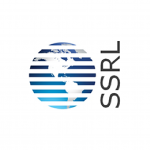
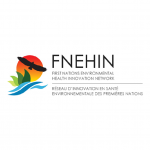
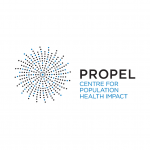
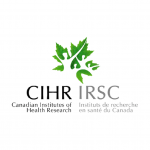
Understanding Aamjiwnaang First Nations’s environmental health journey
In 2017, we were approached by the Indigenous Cancer Control Unit at Ontario Health to support their work with the Aamjiwnaang First Nation near the Sarnia-Lambton “Chemical Valley”, an industrial complex of refining and chemical companies. This community has experienced years of poor air quality, chemical spills, and other exposure events, resulting in serious concerns about environmental quality. In the past decades, Aamjiwnaang has been involved in about 20 related research studies.
Our goal – as identified by the community’s Health Committee and supported by a CIHR Catalyst grant – was to work with Ontario Health to consolidate these data and to describe a more complete account of environmental quality in the area, including the potential cancer risk associated with outdoor air exposures in particular. The approach to this project was to integrate academic tools with Indigenous knowledge, and collaborate respectfully and effectively with the community. We co-developed a series of knowledge products with Aamjiwnaang in their efforts to better understand environmental impacts on health. These include both a technical report and community handout on the risk assessment findings, and a set of digital stories that use a collage of images overlaid with project results to illustrate and describe the influences and realities of environment and health in the community. The results of the risk assessment are published and available here.
Collaborators


Supporting conversations between Indigenous communities and health system partners about the environment and health
Through our work on environmental quality in First Nations communities, we’ve identified an opportunity for supporting conversations between communities and health system partners about the environment and health. In late 2018, we convened partners from the First Nations Health Authority, the Indigenous Cancer Care Unit at Ontario Health, and BC Cancer to discuss what this support could look like. The result of that meeting is an ongoing partnership seeking to establish a shared perspective, processes and principles for working together, and a knowledge translation strategy.
Collaborators



Subscribe to our newsletters
The CAREX Canada team offers two regular newsletters: the biannual e-Bulletin summarizing information on upcoming webinars, new publications, and updates to estimates and tools; and the monthly Carcinogens in the News, a digest of media articles, government reports, and academic literature related to the carcinogens we’ve classified as important for surveillance in Canada. Sign up for one or both of these newsletters below.
CAREX Canada
School of Population and Public Health
University of British Columbia
Vancouver Campus
370A - 2206 East Mall
Vancouver, BC V6T 1Z3
CANADA
As a national organization, our work extends across borders into many Indigenous lands throughout Canada. We gratefully acknowledge that our host institution, the University of British Columbia Point Grey campus, is located on the traditional, ancestral and unceded territories of the xʷməθkʷəy̓əm (Musqueam) people.

